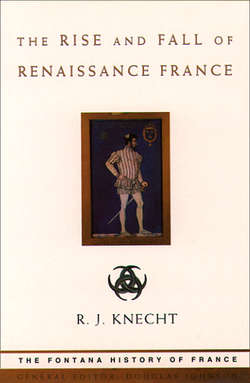Читать книгу The Rise and Fall of Renaissance France - R. Knecht J. - Страница 53
‘Father of Letters’
ОглавлениеFrancis I was anxious to be seen as a great patron of learning as well as a great soldier. Though primarily a man of action, he liked books and enjoyed being read to at mealtimes. His baggage train included two chests of books whose titles point to his main interests: Roman history and the heroic deeds of antiquity. Like many other princes of his day, he was also interested in astrology, alchemy and the Cabala, occult sciences which were believed to hold the key to the universe. Francis asked Jean Thenaud to write two works for him on the Cabala, but the author warned him of its dangers: ‘It is far better’, he wrote, ‘to be ignorant than to ask or to look for what cannot be known without sinning.’
In the early sixteenth century the crying need for humanists in France was an institution in which classical languages that were excluded from the universities’ curriculum could be taught. In February 1517, Francis announced his intention to found such a college. He invited Erasmus to take charge of it, but the great Dutchman was far too keen on his own intellectual freedom to tie himself to the service of any prince. So Francis had to fall back on Janus Lascaris, who was now head of the classical college recently founded in Rome by Pope Leo X. As a first step towards establishing a college in France, the king asked Lascaris to set one up in Milan and provided him with some funds, but these soon ran out and Lascaris had to abandon the venture. In January 1522, Francis decided to establish a college for the study of Greek at the Hôtel de Nesle in Paris, but before this could get under way, his attention was absorbed by his war with the emperor which had begun in 1521.
